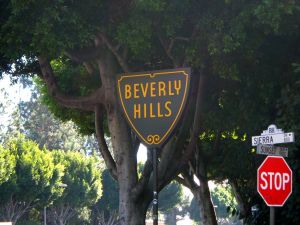Brian Austin Green and his wife Megan Fox were recently hit by a drunk driver. After the collision, Green, who is best known from his starring role on Beverly Hills 90210, spoke to People Magazine about the accident.
 Green said that, while he is not a doctor and doesn’t know if they are okay, they both were able to walk away from the alcohol-related accident. Green and Fox were driving when they were hit by another driver who was arrested for driving under the influence. Green’s airbag deployed during the accident.
Green said that, while he is not a doctor and doesn’t know if they are okay, they both were able to walk away from the alcohol-related accident. Green and Fox were driving when they were hit by another driver who was arrested for driving under the influence. Green’s airbag deployed during the accident.
Green further said the incident was life-changing, and he relieved the entire accident over and over again in his head, trying to think if he could have done something differently that would have prevented the accident.
As our Boston drunk driving accident lawyers can explain, there is often nothing the victim could have done to prevent the accident. Driving a car is an activity which requires constant attention to conditions inside and outside of the vehicle and the ability make split second decisions and react in time to drive in a safe manner.
When a driver is stopped for suspected drunk driving, he or she is often administered standardized field sobriety tests. While these tests may seem like a set of random exercises, they have been carefully created through extensive testing, to see if a driver is impaired to the point where he or she cannot drive in a safe manner.
The way this related to a civil negligence action involving drunk driving deals with the duty of care owed by drivers to other motorists and pedestrians. Under Massachusetts law, all drivers are required to act in a reasonable and prudent manner to prevent foreseeable harm to persons and property. Drunk driving is not only illegal, but it can be used to establish a breach of the at-fault driver’s duty of care owed to victim.
Once a duty has been established, along with a breach of the duty of care, the next two elements that must be proven in a Massachusetts car accident lawsuit are the breach was both the actual and proximate cause of the accident and damages.
Actual and proximate cause deals with the issue of whether the accident would have occurred even if defendant had not been driving drunk. This may be a relevant issue in certain situations, such as chain reaction crashes where a series of crashes occur. It is possible that the drunk driver’s car would have still collided with a victim’s car, even if he or she had been sober, but your attorney can discuss this issue with you in the context of your actual situation.
The last element that must be established is damages. Damages is essentially a monetary amount assigned to victim’s injuries. In the case of medical bills, funeral expenses, and lost hourly wages, it may be easy to calculate. When dealing with placing a value on pain and suffering, earnings from self-employment, or a commission-based employee, your attorney may need additional information to substantiate a claim.
If you or someone you love has been injured a Boston drunk driving accident, call for a free and confidential appointment at (617) 777-7777.
More Blog Entries:
Teens Don’t Fully Understand What it Means to Drive Drunk, April 4, 2014, Boston Drunk Driving Injury Lawyer Blog
 Boston Drunk Driving Accident Lawyer Blog
Boston Drunk Driving Accident Lawyer Blog

